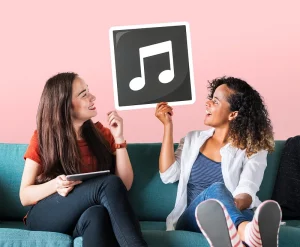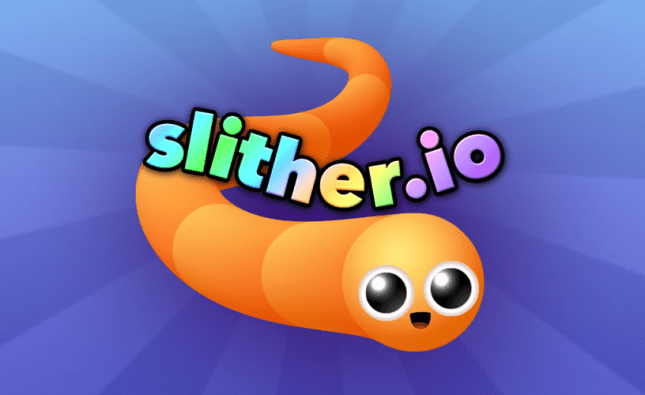
Introduction
In the digital age, social media platforms have become powerful tools for discovering music. Algorithms, the behind-the-scenes engines of these platforms, analyze user behavior to recommend songs, artists, and playlists tailored to individual tastes. This phenomenon has transformed the music industry, offering both opportunities and challenges for artists and listeners.
The Role of Algorithms in Music Discovery

Social media algorithms work by analyzing a user’s interactions likes, shares, comments, and time spent on certain content. Platforms like TikTok, Instagram, and YouTube use this data to recommend music that aligns with a user’s preferences. For instance, TikTok’s algorithm often propels songs into virality, creating overnight sensations.
Challenges of Algorithmic Music Discovery

While social media algorithms bring many benefits, they also come with challenges. One issue is that algorithms often focus on the most popular content, which can make it hard for niche or independent artists to get noticed. Another challenge is that users may get stuck in an “echo chamber,” only hearing music similar to what they’ve already liked, limiting their exposure to new genres. Lastly, while algorithms can help artists gain visibility, it’s not always easy for them to make money from their newfound fame.
1. Limited Diversity
Algorithms often prioritize popular content, which can lead to the over-promotion of a small pool of songs while neglecting niche genres and lesser-known artists.
2. Echo Chambers
Repeated exposure to similar styles of music can create echo chambers, limiting users from exploring diverse musical landscapes.
3. Monetization Issues
While algorithms help artists gain visibility, monetizing viral success remains a challenge. Many musicians struggle to convert social media fame into sustainable income.
The Future of Social Media Algorithms and Music Discovery

The future of music discovery will likely see even more advanced algorithms, offering better and more accurate recommendations. With the help of AI, these algorithms might become even smarter, predicting the type of music listeners want before they even search for it. However, as algorithms continue to shape music discovery, it will be important to ensure that new artists and diverse genres are still given a chance to be heard. The balance between personalization and variety will be key to the future of music discovery.
Comparative Table: Traditional vs. Algorithm-Driven Music Discovery
| Aspect | Traditional Music Discovery | Algorithm-Driven Music Discovery |
|---|---|---|
| Source of Recommendations | Radio stations, music TV channels, word of mouth, record stores | Social media platforms (Spotify, TikTok, YouTube) |
| Personalization | Limited, based on general programming or a DJ’s choices | Highly personalized, tailored to user’s tastes and listening history |
| Music Variety | Broad, but often influenced by mainstream trends and limited access to niche genres | Can be narrow, based on past listening patterns, but offers exposure to a variety of lesser-known artists and genres |
| Artist Exposure | Depends on record labels, radio play, and media coverage | Independent artists can gain exposure through viral content and algorithmic recommendations |
| Discovery Speed | Slower, music is discovered via word of mouth, scheduled radio shows, or browsing stores | Fast, new songs and artists appear on user feeds based on preferences |
| Engagement | Passive, listeners often rely on DJs or presenters to introduce new music | Active, users engage with content, share, like, and follow based on their interests |
| User Control | Limited control, listeners often wait for new releases or radio programs | High control, users can actively like, skip, or share music to influence recommendations |
| Music Exposure for New Artists | Limited, new artists need significant industry backing to gain attention | High, as algorithms can boost songs from small or independent artists with viral potential |
Analysis Table: Impact of Social Media Algorithms on Music
| Aspect | Positive Impact | Negative Impact |
|---|---|---|
| Music Discovery | Helps listeners discover new songs and artists based on preferences and listening history | Limits exposure to new genres or artists outside of one’s usual tastes, narrowing the range of discovery |
| Artist Exposure | Independent and lesser-known artists can gain a larger audience without major label backing | Algorithms may prioritize viral or trendy content, overshadowing high-quality but less marketable music |
| Engagement | Increases user interaction by offering personalized content, encouraging users to explore more | Engagement may be driven by viral trends rather than genuine interest in the music itself |
| Personalization | Provides tailored recommendations that suit individual tastes, enhancing user experience | Over-personalization can make music discovery feel repetitive, limiting exposure to new or different content |
| Music Diversity | Introduces listeners to diverse and niche genres based on user preferences | May create an echo chamber, reinforcing the same types of music and reducing the diversity of music consumed |
| Influencer Impact | Influencers and social media stars can help songs go viral, providing exposure for new music | Influencers can dominate music trends, sometimes overshadowing smaller artists or non-mainstream genres |
| Content Curation | Algorithms curate personalized playlists, making it easier to find music that matches a listener’s mood or activity | Algorithms can push the same songs repeatedly, reducing the variety and excitement of discovering new music |
| Music Trends | Viral music trends can spread songs quickly, offering artists instant visibility | Music trends can sometimes prioritize catchy or superficial tracks, leaving deeper or more meaningful music behind |
Conclusion
In conclusion, social media algorithms have had a profound impact on how we discover, enjoy, and share music. While they offer numerous benefits, like personalized recommendations and greater exposure for independent artists, they also present challenges, such as limiting diversity and making music discovery feel repetitive. As algorithms continue to evolve, it’s important for both listeners and artists to remain aware of how these platforms shape music discovery. By finding a balance between personalization and diversity, social media can continue to enhance the music experience for everyone. The future of music discovery will depend on how algorithms adapt to users’ needs while still promoting a wide range of voices and genres.













